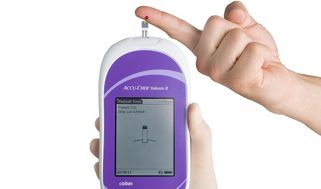Source – https://www.thephuketnews.com/
You may have heard the saying, ‘If all you have is a hammer, everything looks like a nail’. As a nutritionist I will admit that I am a bit of a hammer. If someone asks, ‘How do I get more energy?’ I will likely respond, ‘Eat clean and stay hydrated’. ‘What about having better brain function?’someone asks. ‘Watch those blood sugar highs and low’ might likely be my response.
But what about this COVID -19 epidemic, could nutrition play a role in its outcome? Would it make a difference if we were equally focussed on our diet and immune system as much as preventing contracting the virus with social distancing, hygiene, and masks?
Statistics
Thailand’s mortality rate from COVID-19 stands at one of the lowest in the world at 1.7% (global average was estimated at around 6%). However, among the deceased 41% had diabetes, 36% had high blood pressure, 18% had hyperlipidemia, and 14% had heart diseases.
When divided by age group, those who are over 70 had the highest mortality rate at 12.1%, followed by those aged 50-59 (4%) and 60-69 (3.7%), while the group with the lowest risk is 20-29 years old at 0.2%.
Among the deceased, 41% had diabetes, 36% had high blood pressure, 18% had hyperlipidemia, 14% had heart diseases.
The CDC also recently released statistics that 94% of those who died had more than one underlying medical condition. When this figure is connected with the statistic that those people over 70 have the highest rates of mortality it stands out that health is a key player in COVID Mortality for those under 70 years of age.
COVID-19 and metabolic syndrome
So I was thrilled to read a recent editorial from Dr Maryanne Demasi in the British Medical Journal titled; ‘COVID-19 and metabolic syndrome: could diet be the key?’
Dr Demasi starts by sharing the now-familiar statistics of the vast majority of people hospitalised and dying from COVID-19 as having pre-existing conditions including:
- Two-thirds of the people in the UK have fallen seriously are with COVID, who are overweight or obese.
- 99% of deaths in Italy have been in patients with pre-existing conditions such as hypertension, diabetes and heart disease.
These conditions make up what is known as metabolic syndrome, and include high blood pressure, low good cholesterol, high blood sugar, high waist circumference.
Perhaps this may help to explain Thailand’s lower rate of mortality as Thailand has about half the Metabolic Syndrome cases of the US and UK – about 16% compared to the US and UK with over 32%.
What causes Metabolic Syndrome
Dr Demasi goes on to say metabolic syndrome is related to insulin resistance. The most significant factor that determines blood glucose levels is the consumption of carbohydrates, refined carbs, starches and simple sugars.
She believes one of the problems facing people now is that people who are confined to nursing homes, hospitals and self-isolating are stockpiling non-perishable staple foods which are generally high carbohydrate like pasta, bread, rice and cereals and increasing their mortality risk.
Are you at risk of Metabolic Syndrome?
I highly recommend every year people doing an annual health check-up and getting your labs done. We are blessed when it comes to medical tourism in Phuket. With International Hospitals offering health checks along with many walk-in clinics. Here are some of the tests related to metabolic syndrome:
Fasting Blood Sugar, HBA1c (long term blood sugar), Full lipid (Cholesterol markers), Fasting Insulin along with getting your waist circumference measured (men should be under 90cm, women under 85cm) and blood pressure taken.
What do you do if these markers are high?
Naturally, talk to your doctor about solutions but here are 3 strategies to help using diet (regular exercise and good sleep naturally also help):
- Reduce as much sugar as possible – so cut down or ideally eliminate the soft drinks, reduce adding sugar to meals or drinks and consuming confectionary.
- Go lower Carb – especially lowering the refined grains like white bread, pasta, potatoes and rice. Try to replace these with more vegetables. As Doctor Demasi rightly says, even most diabetic associations now agree that restriction of dietary carbohydrates is a safe and effective way to achieve good balance between blood sugar and weight loss.
- Try Intermittent Fasting (I.F.). I.F. is not for everyone (especially not for kids, pregnant women, and those with low blood sugar issues). But for those with metabolic syndrome not eating frequently and having longer gaps between meals has considerable research supporting its efficacy in blood sugar balance. The 5:2 diet is one style that recommends twice a week eating just 1 meal. Another strategy recommends eating only during an eight-hour window eg. 10am to 6pm and fasting the remainder.
The key to long-term health success comes from firstly ownership of your health, so I highly recommend to get your labs done. If the results are not in your favour then make it very clear why health is important. Then comes the plan. Find the strategies that will work long term and become healthy habits. Finally, you need to make yourself accountable to follow through – maybe also share your goals with a friend, partner or coach and make those strategies become life-long habits. Good health to you!
Craig Burton (BSc, NASM, CISSN) is a practicing Clinical and Sports Nutritionist with over 20 years’ experience as a health practitioner. He holds an array of qualifications in nutrition, as well as in health, fitness, mental and lifestyle coaching. To find out more about Craig or contact him go to www.craigburtoncoaching.com
